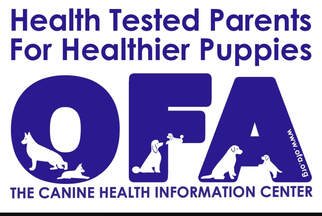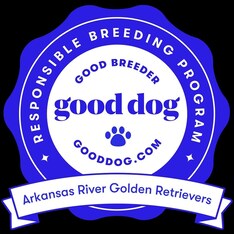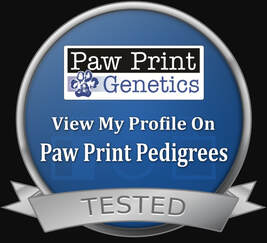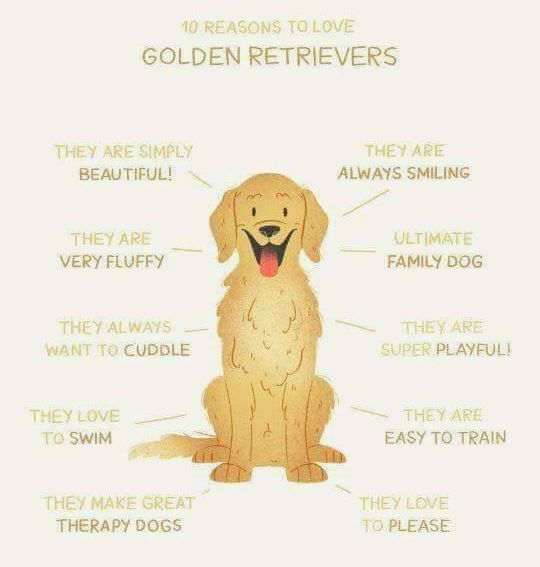Miscellaneous Information
"Golden retrievers are not bred to be guard dogs, and considering the size of their hearts and their irrepressible joy in life, they are less likely to bite than to bark, less likely to bark than to lick a hand in greeting. In spite of their size, they think they are lap dogs, and in spite of being dogs, they think they are also human, and nearly every human they meet is judged to have the potential to be a boon companion who might, at any moment, cry "Let's go!" and lead them on a great adventure."
Basics to know about health clearance and breeding standards
So you might be interested in breeding your dogs? You want a puppy, but want to be sure it's healthy? Then this is for you. I feel that the subject of health clearances is extremely important to anyone looking to add a purebred dog to their family. Many people decide to get a purebred puppy or enter the breeding world with no knowledge of what health clearances are and why they are important. We, admittedly, are among those people. When we got our first golden retriever and then decided to begin breeding, we didn't realize we needed to research and learn everything about our breed and what breeding would entail. We didn't realize how many health risks the breed carries and how genetics plays a role. We were confused about what OFA was and what the big deal was in getting things "OFA certified". Through a couple of our own negative experiences with health issues and through a lot of research and talking to other breeders that were willing to take the time to mentor, we found our way through they why's and how's of health clearances. Here are some basic things to know about health clearances and responsible breeding:
|
Owning A Golden Retriever
I really like this summary of what to expect in owning a Golden Retriever, which I got from the GRRMF website. It's really pretty spot-on, though there may be a couple of variations with individual dogs and how they're raised and trained. I've italicized the points I would like to emphasize and added red text as my own personal comments: Golden Retrievers are wonderful, right? Well then, of course everyone should have one. Actually – no – they aren’t suitable for every family. It’s important to consider some key qualities of a golden before deciding to own one. For some people, these qualities are “features”. For others, they are “bugs”. Either way, it is vital that you examine your own lifestyle, needs and wants to see if a golden is right for you. And, conversely, you need to evaluate if you can meet the needs of a golden retriever. If you can, we can attest to the fact that owning a golden is one of the most rewarding experiences you will ever have! They are addicting and people seldom have just one in their lifetimes. Once you have a golden, you’re usually hooked for life. Here are a few things to consider:
Well, there you have it – the inside scoop on owning a golden. We’re not trying to scare you off – but rather just make you think carefully about bringing a beautiful fluffy golden retriever into your family so you both may live happily ever after. |




